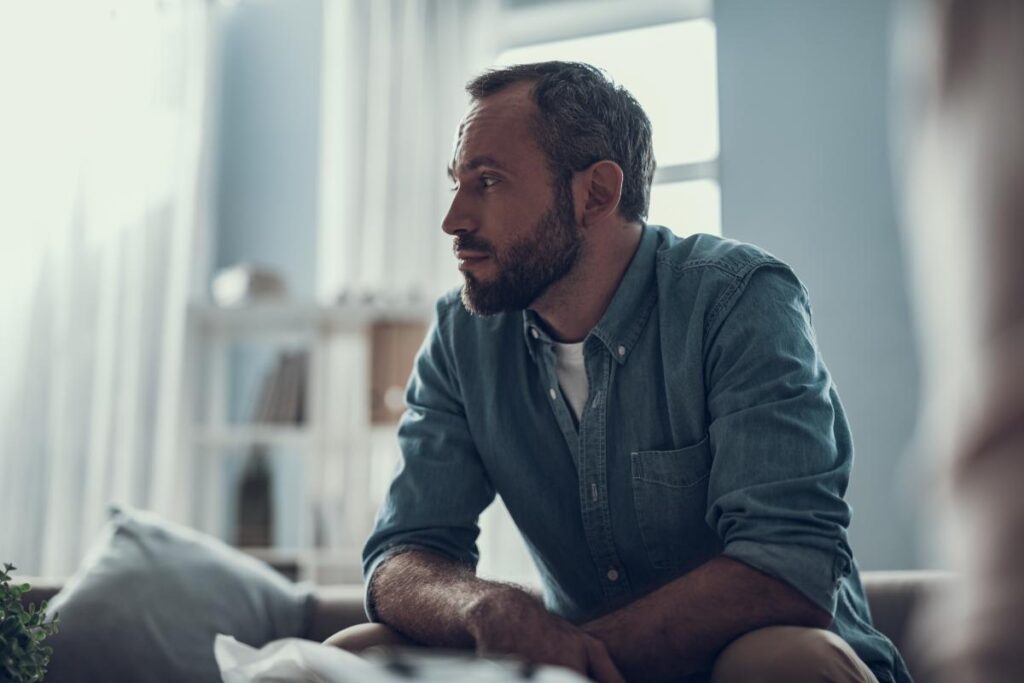Addiction takes a toll on all that it touches— whether that be the person struggling or the family and friends around them. Recognizing the signs of alcohol abuse is the most important first step. Getting yourself—or someone you care about—the necessary help is what should follow.
Find out more about what alcohol addiction treatment looks like by contacting the caring treatment team at The Arbor by dialing 844.413.2690.
5 Signs of Alcohol Abuse
The signs of addiction may not be obvious at first, especially in someone you care about. Symptoms can develop over time, making it more difficult to recognize any red flags. Signs can be physical, emotional, and behavioral.
Some of the most common signs of alcohol abuse to keep an eye out for include:
1. Hygiene
In addition to noticeably not taking care of themselves, the dehydration caused by excessive alcohol intake makes people look more tired than they actually are.
2. Reclusiveness
Uncharacteristic behavior, such as avoiding close friends and family and spending more time alone and in secret, is a red flag.
3. Skin
Alcohol abuse can be visible through a red face, yellow skin, or the clear smell of alcohol coming off the body.
4. Intestinal issues
Alcohol can eat away at the stomach lining over time, causing an upset stomach, ulcers, or severe weight loss.
5. Poor coordination
Alcohol abuse directly affects the brain and compromises one’s sense of balance and coordination.
If you suspect a loved one of alcohol abuse, be sure to reach out to The Arbor for alcohol addiction treatment.
What Does Alcohol Addiction Treatment Look Like?
If you are concerned that you or a loved one is struggling with an addiction to alcohol, then seeking treatment is the most critical next step. Each person’s journey to addiction is different, as is each person’s path to recovery. A professional addiction treatment center will help you customize a treatment plan unique to you and your needs. Plans will include a variety of evidence-based and experiential therapies.
Treatment will start with removing alcohol from your system, which can involve a medically supervised detox, depending on the severity of the addiction. This can be followed by inpatient treatment for the highest level of support and around-the-clock supervision. For less severe addictions, outpatient options are available to provide more flexibility with work, school, or family commitments. In many cases, a co-occurring mental health condition can exist alongside addiction and can be treated as part of a dual diagnosis program.
Therapeutic modalities at The Arbor include:
- Cognitive-behavioral therapy (CBT)
- Contingency management
- Motivational interviewing
- 12-Step programming
- Art therapy
- Equine-assisted therapy
A tailored combination of evidence-based therapies and holistic approaches offers the best chance of healing and recovery.
Alcohol Withdrawal Symptoms
In addition to the signs of alcohol abuse, knowing what withdrawal from alcohol use will look like is also important. Going through withdrawal under medical supervision is the safest and most effective option. Trying to withdraw on one’s own has a high rate of relapse. Withdrawal symptoms can be severe and include:
- Seizures
- Hallucinations
- Nausea and vomiting
- Extreme sweating
- Tremors or body shakes
Once withdrawal is complete, then effective therapies can begin. Treatment does not end once a client leaves rehab. Aftercare is crucial for lifelong sobriety. This can come in the form of sober living housing, a 12-step program, or peer support groups.
Take the Next Step and Get Alcohol Addiction Treatment at The Arbor
If you are struggling with alcohol addiction, you are not alone. It is actually one of the most common addictions in the country. Enroll in an alcohol addiction program today to get yourself back on track to a healthier and more productive life free of alcohol.
In addition to treating alcohol addiction, The Arbor also treats cocaine addiction, benzo addiction, fentanyl addiction, heroin addiction, meth addiction, opioid addiction, and other substance use disorders and co-occurring mental health conditions.
Call the treatment team today at 844.413.2690 or reach out online to learn more about substance use disorder treatment options.

